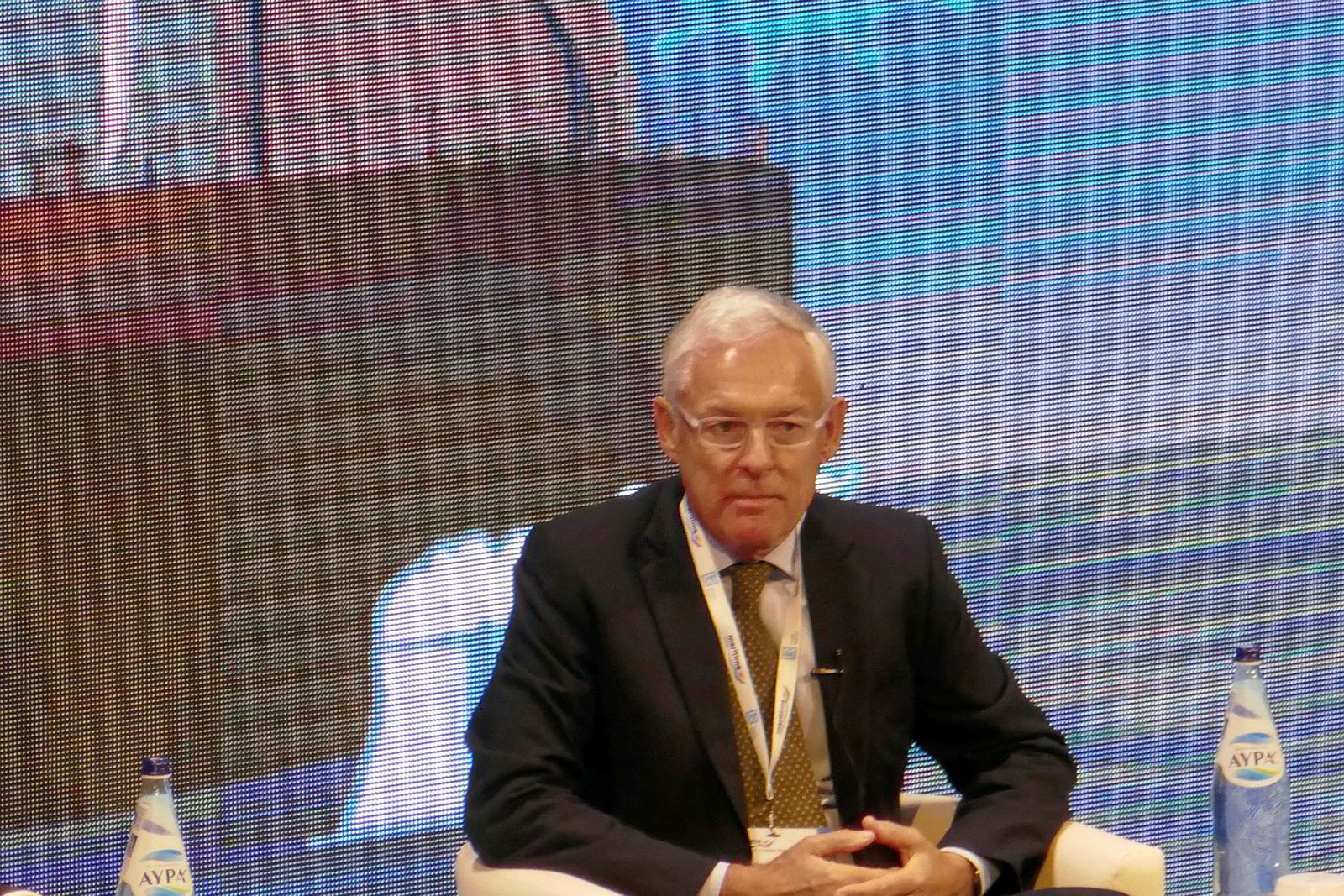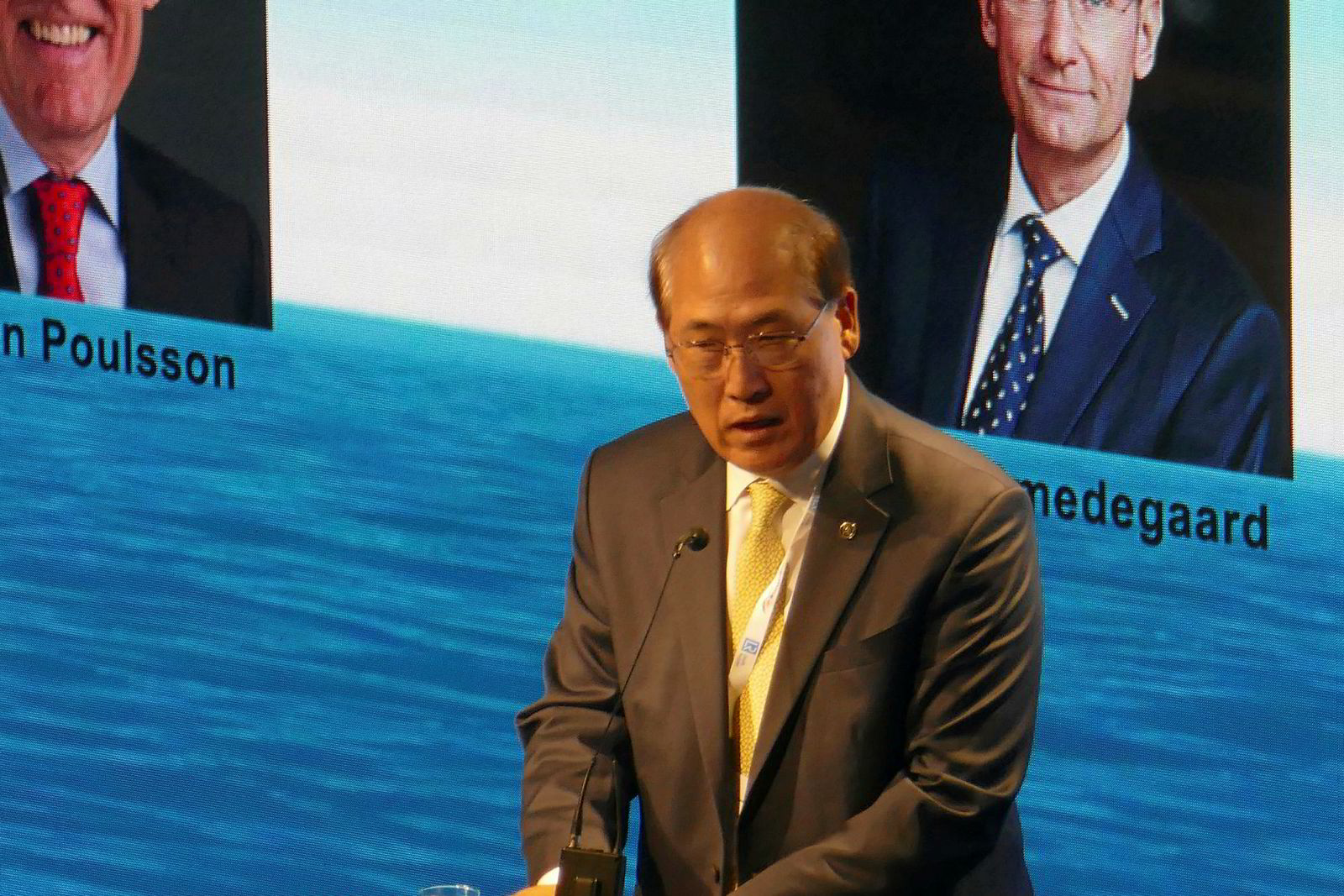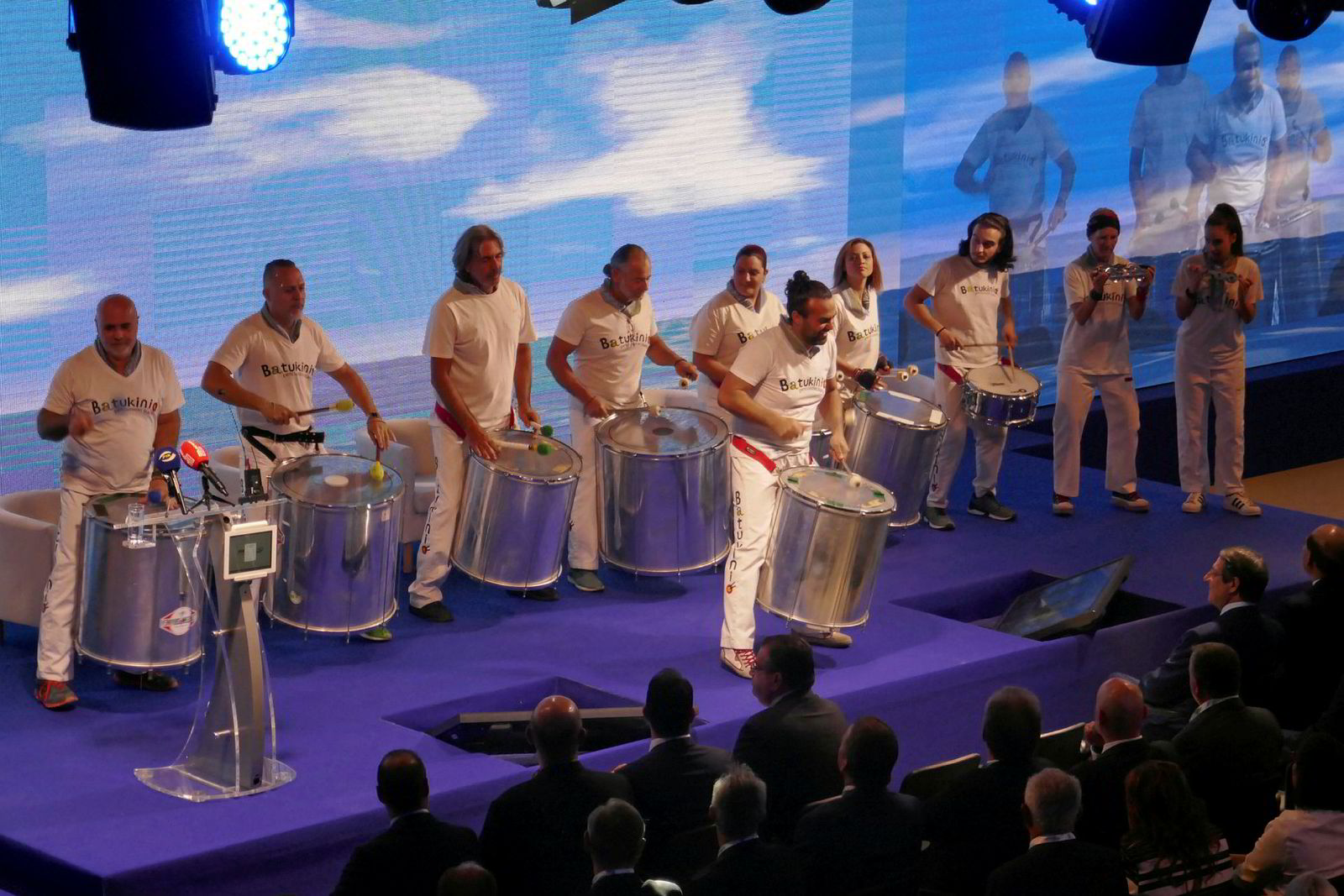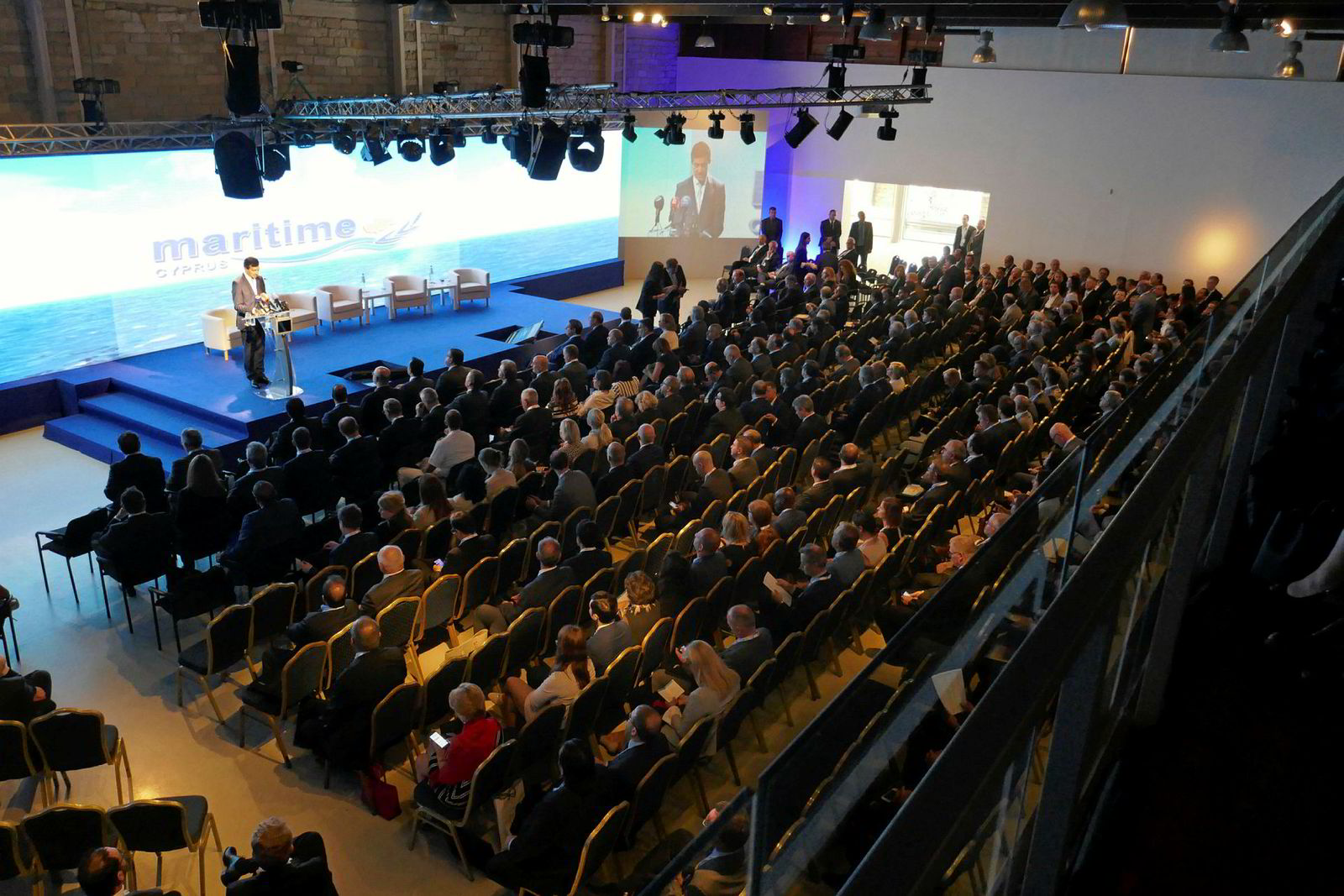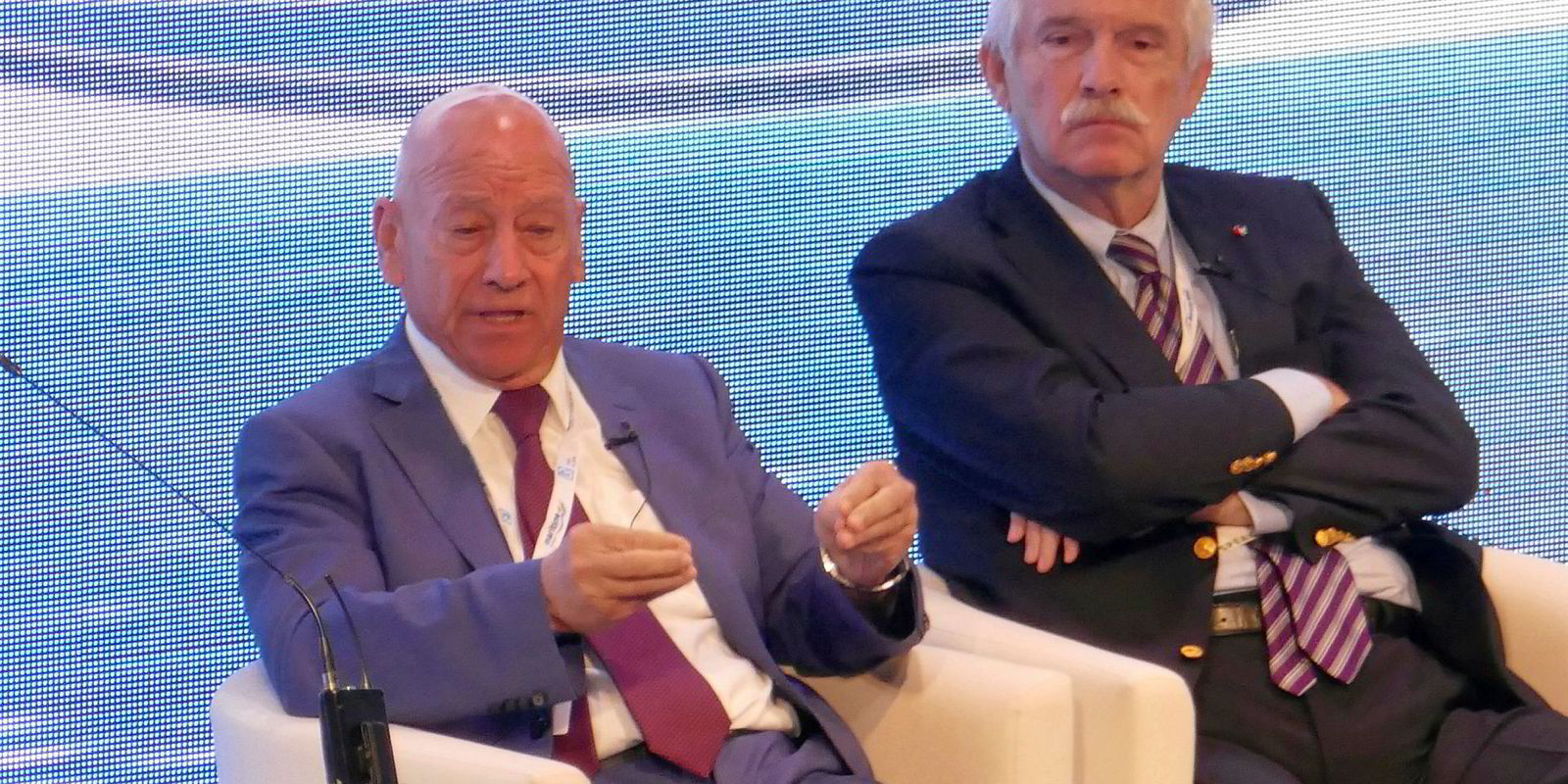The global shipping industry must agree to ambitious carbon cut targets or face of the risk of unilateral European Union (EU) action that will be even tougher to deal with, Europe's official in charge of shipping warned this week.
Violeta Bulc, the European Commissioner for transport, told reporters she defied illness to visit international shipping officials gathering in Cyprus to help concentrate minds on the task at hand.
“I’m here, in spite of my weakened physical condition,” she said on the sidelines of the 15th Maritime Cyprus conference in Limassol. “I know it’s important to meet face to face with key representatives of stakeholders to discuss this, to feel what is really holding them back in order to make them more ambitious."
Also present at the conference were International Maritime Organization (IMO) secretary-general Kitack Lim, European Community Shipowners’ Association (ECSA) president Niels Smedegaard and International Chamber of Shipping (ICS) chairman Esben Poulsson.
Bulc said an ICS proposal to target shipping emissions cuts was a good start but still fell short of what was appropriate to cope with climate change.
The IMO is holding a crucial round of preparatory talks on cutting carbon emissions at the end of October, in view of arriving at a common position in April next year. The EU considers both dates as deadlines and will follow progress closely, Bulc said.
“We need binding elements that we can measure," she said. "We want short and long-term solutions, and we really want to have a workable timetable and a plan how we are going to walk the talk."
The ICS has proposed a three-pronged compromise that involves holding shipping’s global emissions below 2008 levels; then cutting them by an as yet unspecified amount by 2050; and fully decarbonising the industry at some point within the second half of this century.
Bulc called such proposals “encouraging” because they got the debate going. However, at the same time, she said it left a lot to be desired in terms of clarity, commitment and verifiability.
She assured that she wanted to avoid unilateral European action because shipping was global and required a worldwide solution at the IMO.
“I’m putting all my effort now to achieve an IMO deal," she said. "The other option is regional: China will go its own way, Europe will go its own way and this would be a disaster for the maritime industry.”
On the other hand, she warned that any solution that failed to curtail shipping’s carbon emissions by a wide enough margin, would be rejected by the European Parliament, the EU’s legislative organ.
“I really don’t want regional solutions altogether," she said. "But if we’re not ambitious enough, I can’t stop my parliament from voting against me."
Nordic EU countries were also pushing in the same direction as European lawmakers, proposing their own “very ambitious” set of carbon limits, which Bulc said the European Parliament might want to adopt as a benchmark.
Other governments and institutions are also positioning themselves ahead of the IMO meeting at the end of this month.
China, Argentina, Saudi Arabia and the Philippines have put forward a joint proposal on what a global CO2 emission strategy at the IMO level might look like.
“We appreciate that what these nations have proposed at the IMO might currently fall short of what many EU member states may be seeking,” Poulsson told the Maritime Cyprus conference. “But we think this text proposed by China and others, if combined with the CO2 reduction objectives put forward by the shipping industry, could actually provide the makings of a truly ambitious agreement."
Earlier in the conference, traditional owners from Greece and Cyprus argued that shipping should not be subjected to harsh treatment because it was already the most environmentally friendly mode of transport in terms of carbon output per ton of cargo carried. Some also warned that unduly strict measures could lead to an exodus of shipping companies from Europe.
“We don’t deserve to be punished,” Andreas Hadjiyiannis, president of the Cyprus Union of Shipowners and founder of Cyprus Sea Lines, said.
However, such arguments do not seem to cut much ice with Bulc. Other modes of transport, such as cars and aeroplanes, also made pleas for special treatment but, in the end, they all had to contribute towards carbon cuts.
“What I know is that transport needs to deliver and I know that each mode needs to deliver,” she said.

